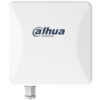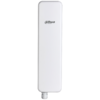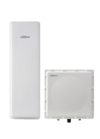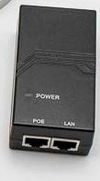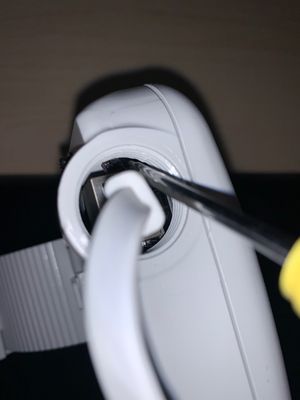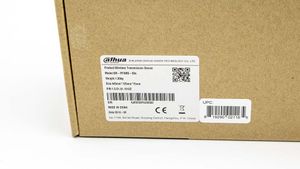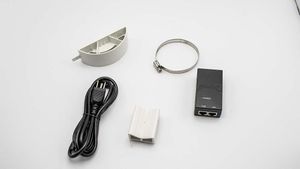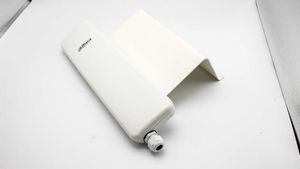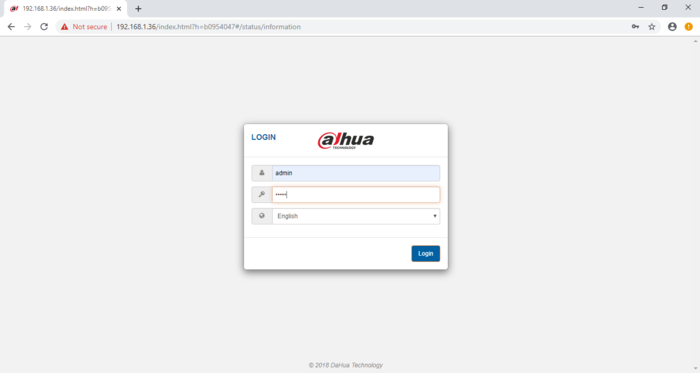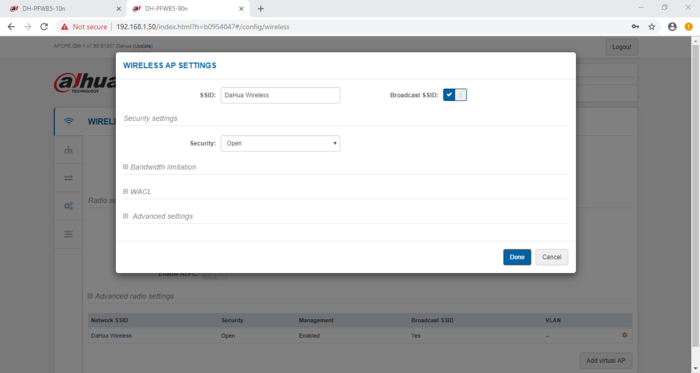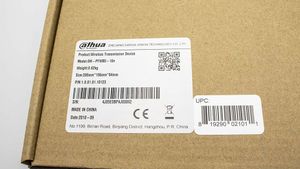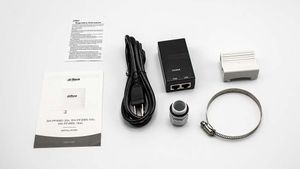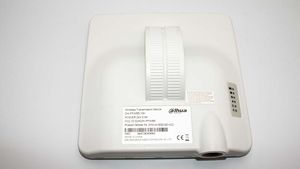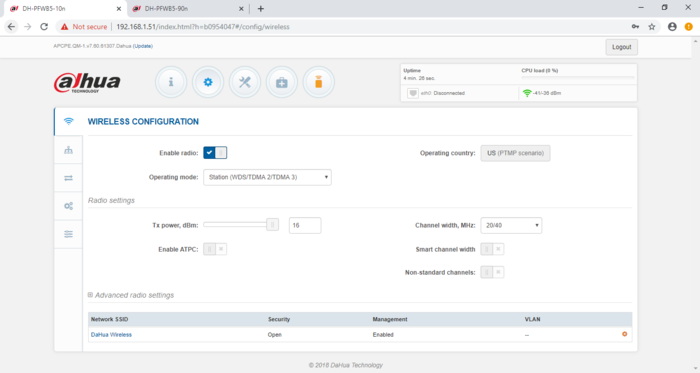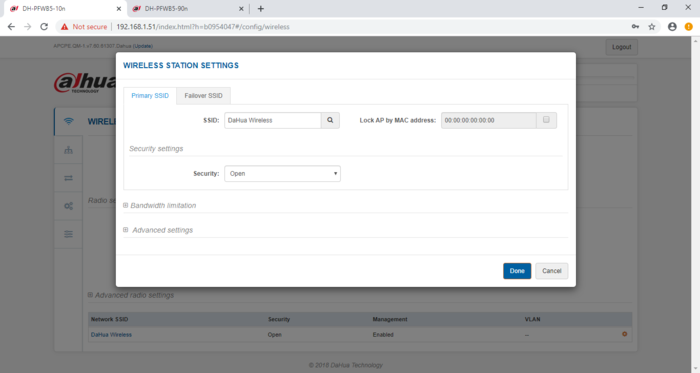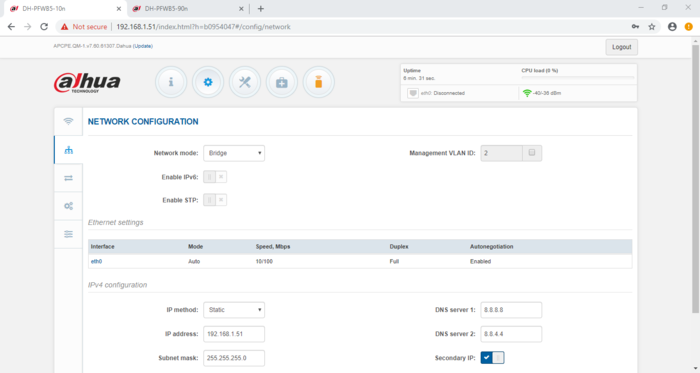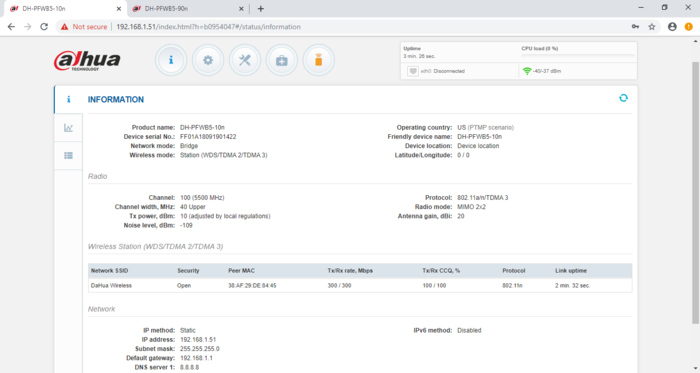Difference between revisions of "Template:Product Point to Point"
(→Step by Step Instruction for Wireless Transmission Device DH-PFWB5-90n) |
(→Step by Step Instruction for Wireless Transmission Device DH-PFWB5-90n) |
||
| Line 115: | Line 115: | ||
| − | 1. | + | 1. Set your PC IP address to 192.168.1.200 <br> |
| − | 2. Connect to the DH-PFWB5-90n to your PC using a patch cable.< | + | 2. Connect to the DH-PFWB5-90n to your PC using a patch cable.<br> |
| − | 3. ping the IP address of the DH-PFWB5-90n (192.168.1.36) to make sure it is online.< | + | 3. ping the IP address of the DH-PFWB5-90n (192.168.1.36) to make sure it is online.<br> |
| − | 4. Using IE or Chrome type the IP address on a browser.< | + | 4. Using IE or Chrome type the IP address on a browser.<br> |
| − | 5. Login screen.< | + | 5. Login screen.<br> |
| − | [[File:login.PNG|700px]] | + | [[File:login.PNG|700px]]<br> |
| − | + | 6 Main Menu<br> | |
| − | [[File:1a_Info90.PNG|700px]] | + | [[File:1a_Info90.PNG|700px]]<br> |
| − | + | Setup, Wireless Configuration.<br> | |
| − | + | 7. Enable the radio button.<br> | |
| − | + | 8. Operation Mode "'''Access Point''' (WDS/TDMA 2/TDMA 3)" | |
| − | + | 9. Wireless Station Settings, SSID and Security.<br> | |
| − | [[File:4_WL_SSID90.PNG|700px]] | + | [[File:4_WL_SSID90.PNG|700px]]<br> |
| − | + | 10. Network Configuration, Bridge mode<br> | |
| − | + | 11. Assigned a static IP, DNS and Subnet mask.<br> | |
[[File:Network90.PNG|700px]] | [[File:Network90.PNG|700px]] | ||
| − | + | 12. Information Screen.<br> | |
| − | + | 13. Here you can see that the device is online, SSID, IP.<br> | |
| − | [[File:1a_Info90.PNG|700px]] | + | [[File:1a_Info90.PNG|700px]]<br> |
| − | * Congratulation your device is online. | + | * Congratulation your device is online.<br> |
==Video Instructions for Wireless Transmission Device DH-PFWB5-10n== | ==Video Instructions for Wireless Transmission Device DH-PFWB5-10n== | ||
Revision as of 23:17, 10 May 2023
Contents
- 1 Wireless Point to Point
- 1.1 NOTE
- 1.2 Networking Mode
- 1.3 Information
- 1.4 How to reset the DH-PFWB5-10n and DH-PFWB5-90n
- 1.5 Video Instructions for Wireless Transmission Device DH-PFWB5-90n
- 1.6 What is in the box - PFWB5-1-90N
- 1.7 Step by Step Instruction for Wireless Transmission Device DH-PFWB5-90n
- 1.8 Video Instructions for Wireless Transmission Device DH-PFWB5-10n
- 1.9 Step by Step Instruction for Wireless Transmission Device DH-PFWB5-10n
- 1.10 Instructions
Wireless Point to Point
NOTE
- DO NOT MIX GENERATION 1 and GENERATION 2 DEVICES!
- Access point broadcasts the SSID, and the base station(s) connect to the access point.
Networking Mode
| Point to Point | 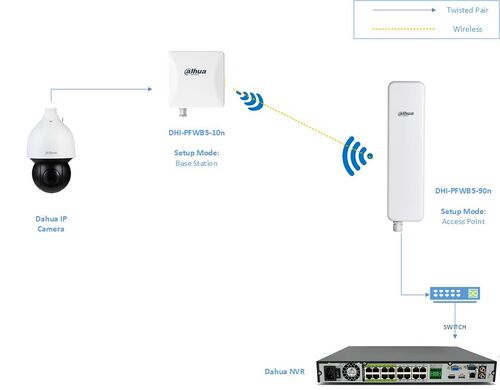
|
| Point to Multipoint | 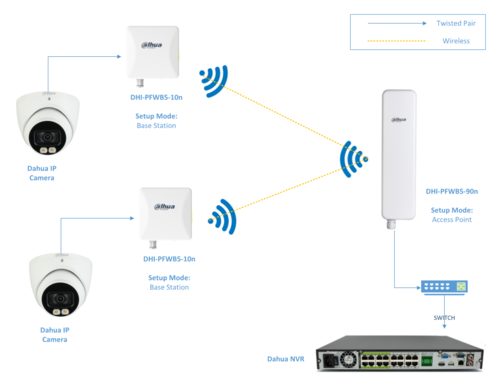
|
Information
- 192.168.1.36 is default IP
- Default User Name = admin
- Default Password = admin
- DHI-PFWB5-90n, Access Point, long skinny unit, Home Base
- DHI-PFWB5-10n, Station, square unit, Satellite
Operating Modes
802.11n:
- Access Point (autoWDS),
- Access Point (TDMA 2)
- Access Point (TDMA 3)
- Station (WDS/TDMA 2/TDMA 3)
- Station (ARPNAT)
802.11ac:
- Access Point (autoWDS)
- Access Point (TDMA3)
- Station (WDS/TDMA 3)
How to reset the DH-PFWB5-10n and DH-PFWB5-90n
- Make sure the unit is connected to the POE unit that is included in the package.
- Press the reset button for 15 seconds. You will see the LED on the side of the device flash.
Video Instructions for Wireless Transmission Device DH-PFWB5-90n
What is in the box - PFWB5-1-90N
Step by Step Instruction for Wireless Transmission Device DH-PFWB5-90n
- It is best to setup these devices on a bench before installing them.
- Power on and Configure one device at a time, they all have the same default IP address.
- Always use the included POE injector on all configurations.
1. Set your PC IP address to 192.168.1.200
2. Connect to the DH-PFWB5-90n to your PC using a patch cable.
3. ping the IP address of the DH-PFWB5-90n (192.168.1.36) to make sure it is online.
4. Using IE or Chrome type the IP address on a browser.
5. Login screen.
6 Main Menu
Setup, Wireless Configuration.
7. Enable the radio button.
8. Operation Mode "Access Point (WDS/TDMA 2/TDMA 3)"
9. Wireless Station Settings, SSID and Security.
10. Network Configuration, Bridge mode
11. Assigned a static IP, DNS and Subnet mask.
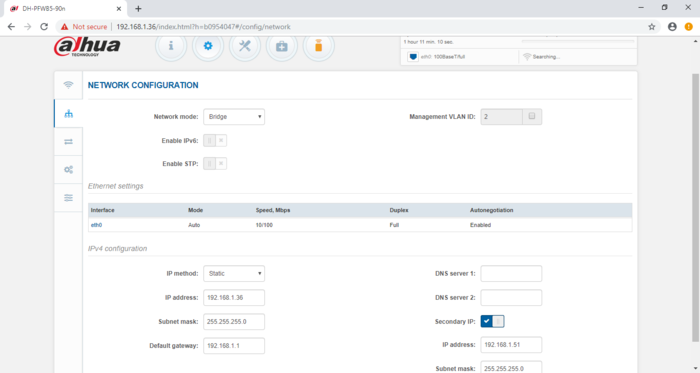
13. Here you can see that the device is online, SSID, IP.
- Congratulation your device is online.
Video Instructions for Wireless Transmission Device DH-PFWB5-10n
Step by Step Instruction for Wireless Transmission Device DH-PFWB5-10n
- It is best to setup these devices on a bench before installing them.
- Power on and Configure one device at a time, they all have the same default IP address.
- Always use the included POE injector on all configurations.
- What is in the BOX - DH-PFWB5-10n.
- 1. Give your PC a IP address of 192.168.1.200
- 2. Connect to the DH-PFWB5-10n to your PC using a patch cable.
- 3. ping the IP address of the DH-PFWB5-10n (192.168.1.36) to make sure it is alive.
- 4. Using IE or Chrome type the IP address on a browser.
- 5. Login screen.
- 6 Main Menu
- Setup, Wireless Configuration.
- 7. Enable the radio button.
- 8. Operation Mode "Station (WDS/TDMA 2/TDMA 3)"
- 9. Wireless Station Settings, SSID and Security.
- 10. Network Configuration, Bridge mode
- 11. Assigned a static IP, DNS and Subnet mask.
- 12. Information Screen.
- 13. Here you can see that the device is online, SSID, IP.
- Congratulation your device is online.
